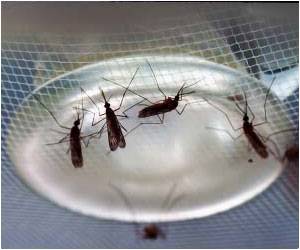A team of researchers led by Prof. Dr. Carola Hunte has succeeded in describing how the antimalarial drug atovaquone binds to its target protein.

The drug combination atovaquone-proguanil (Malarone) is a medication used worldwide for the prevention and treatment of malaria.
The data and the resulting findings concerning the mode of action of atovaquone could lead to improved medications against the tropical disease.
Hunte and her team conducted the research at the Institute for Biochemistry and Molecular Biology of the Faculty of Medicine and the Centre for Biological Signalling Studies BIOSS at the University of Freiburg.
Malaria is one of the most dangerous tropical diseases in the world. Anopheles mosquitoes infected with Plasmodium species - unicellular parasites - transmit the disease by biting. Atovaquone blocks a protein of the respiratory chain in the mitochondria, the power plants of the cell, thus killing off the parasites.
However, the pathogen is susceptible to mutations so that drug resistant strains are arising and spreading.
Advertisement
They used the mitochondrial protein from cells of baker's yeast for their analyses due to its close resemblance to the parasitic protein.
Advertisement
Source-ANI










